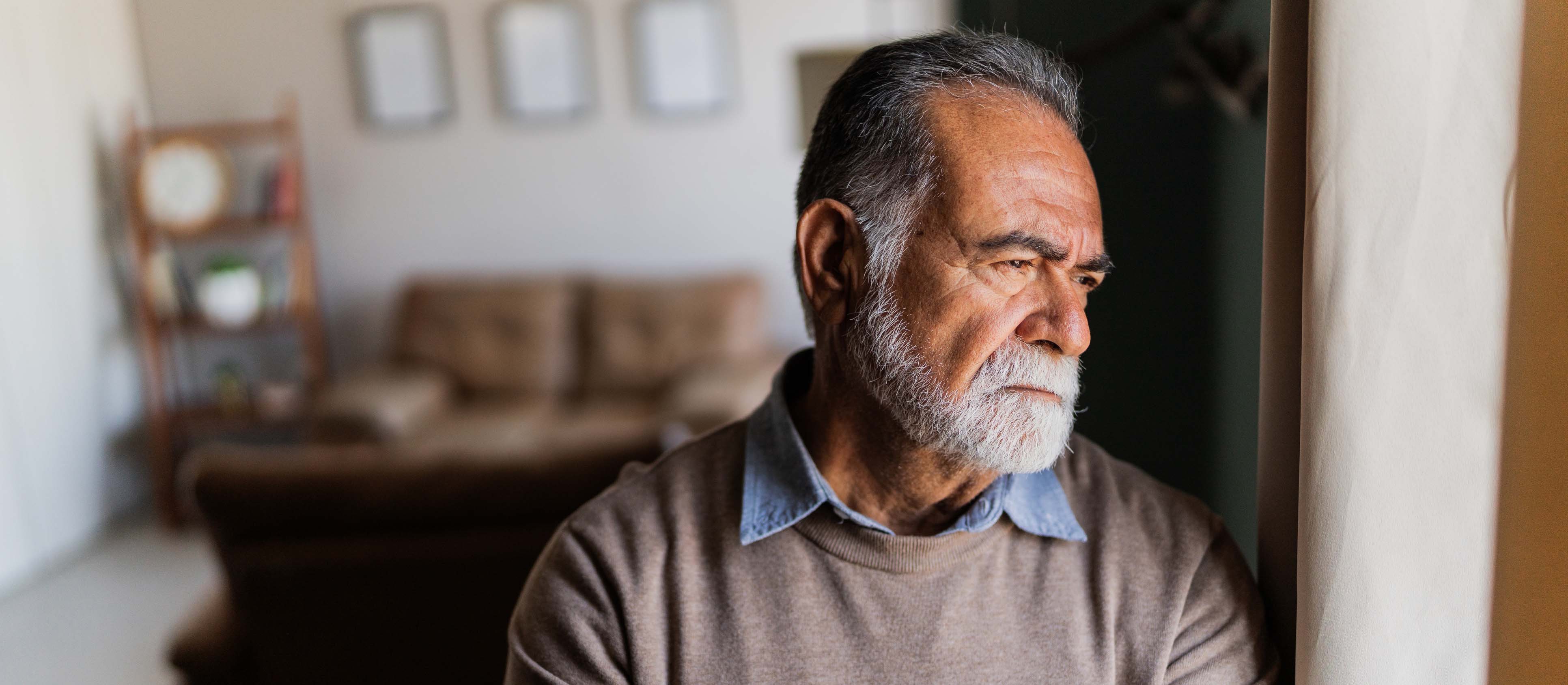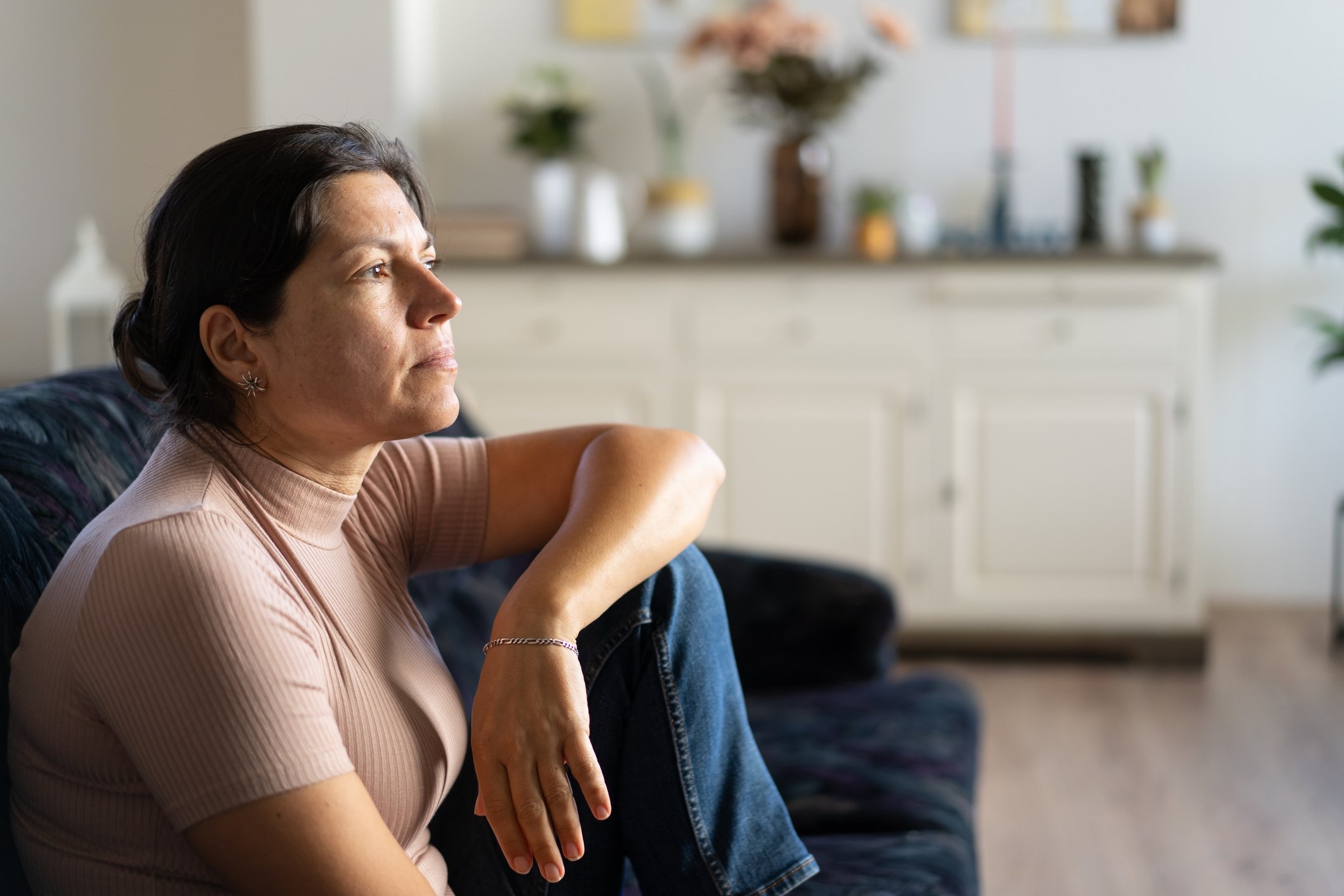Dealing with Regret After the Death of a Loved One

Drew Barrymore once quipped, “I never regret anything. Because every little detail of your life is what made you into who you are in the end.” Her words capture a common cultural belief—that every choice shapes us into who we are and should therefore be accepted without remorse. This cultural script unravels in the face of loss, though. Such a perspective often leaves us unprepared for the flood of regret that comes after the death of a loved one.
After her husband died, Rebecca experienced unrelenting waves of regret:
I felt like my brain had bookmarked every regret and hit autoplay, forcing me to relive them on an endless loop. It wasn’t just the big things, either. For some reason that last week kept replaying. Why was I mindlessly scrolling on my phone when he was trying to tell me about his day? Why did I dismiss his headache as just another whining session? What if I would have listened? And why did we fight about finances the day before he died?
Rebecca kept replaying these moments in her mind, not certain what to do with the guilt that she felt. Feelings of regret, like Rebecca’s guilt, are common after the loss of a loved one. But, left unchecked, regrets can complicate your grief and slow the healing process. Regret can come in different forms; here are a few.
What might you regret?
Maxine’s husband died unexpectedly. She kept wondering if she should have “noticed something was bothering him sooner. Maybe I wasn’t the observing wife that I should have been.” Would he still be alive if she’d called 911 sooner?
The “should haves” and the “what ifs” present endless scenarios to our minds. After her husband died in a car wreck, Deb faced several “what ifs.” As she said, “What if, what if it had been me? What if, what if he had left five minutes later? ‘What ifs’ just kept coming and coming and coming and coming.”
These “should haves” and “what ifs” often attach to specific memories, like an unanswered phone call, a postponed visit, or a quick stop at the gas station before visiting the hospital. Each feels like a missed opportunity to rewrite the story. They can also lead you to rethink certain aspects of your relationship in ways you didn’t before. After his wife of 57 years passed, Robert reflected on their marriage:
I’m not necessarily a romantic and she so desperately needed a romantic. Not that we didn’t have a good marriage; we had a great marriage. But she needed more than I was giving her. And there’s that regret, you know, if I’d taken a little more time to step outside of my personality and be a little bit more huggy and a little more kissy, a little more the ‘let’s sit on the couch and cuddle’ type …
Sometimes the regret isn’t about what you should have done but rather about the things you feel you shouldn’t have done. Maybe it’s a memory of saying something you wish you hadn’t, or neglecting a call or text. Perhaps you are haunted by thinking you shouldn’t have overlooked warning signs or allowed certain risky behaviors. For Sonya, her regret is that she kept encouraging her grandmother to go through medical procedures, because she couldn’t let go. As she said, “I felt like maybe [we were] just putting her body through so much.”
 When Jason’s brother, Jax, died after COVID-19 complications, he experienced survivor’s guilt. They had both contracted the virus, so why was Jason alive but his brother wasn’t? He wrestled with intense feelings that he didn’t deserve to be here if his brother wasn’t. He said, “I kept thinking, Why wasn’t it me? Why did I get to live?” He felt stuck. Every moment of joy felt undeserved—as if he shouldn’t experience any happiness now that his brother was gone. And yet not enjoying life also felt like a slap in the face to his brother.
When Jason’s brother, Jax, died after COVID-19 complications, he experienced survivor’s guilt. They had both contracted the virus, so why was Jason alive but his brother wasn’t? He wrestled with intense feelings that he didn’t deserve to be here if his brother wasn’t. He said, “I kept thinking, Why wasn’t it me? Why did I get to live?” He felt stuck. Every moment of joy felt undeserved—as if he shouldn’t experience any happiness now that his brother was gone. And yet not enjoying life also felt like a slap in the face to his brother.
You might also feel guilty for the pace of your healing journey. Do you feel like you are “moving on too quickly”? Or ashamed for not “getting over it” quickly enough? After her son died, Nan felt guilty for enjoying vacations with her other children, but also wrestled with trying to move forward for her other boys. She shared:
There was a part of me that felt guilty for going on a vacation because we weren’t doing it with Connor. It was as if we were leaving him behind. And yet you have these other children and you have this life that you're trying to move forward in. And there’s just these opposing emotions of, I want to move forward. I want to enjoy this. But I can’t enjoy this because I don’t have my other child with me. It’s emotionally exhausting.
As you’ve likely experienced, regret can take many forms. Do these regrets have a common source?
What is regret?
From these examples, to regret something is to wish that it had never happened. It is an emotional response where you feel remorse for something you’ve done or sorrow for something you were unable to do. This experience of guilt and shame occurs when you violate a personal standard—a standard that often is reinforced by your friends and family members.
Sarah believed it was her duty to check on her father daily, even though they lived an hour apart. The night before his heart attack, she had planned to call, but got caught up in helping her kids with homework and decided to call the next morning. When her father passed away during the night, Sarah couldn’t stop berating herself. Family and friends urged her to “forgive yourself.”
She had violated her standard of “checking in daily.” But this was not a standard that her father had placed on her. Concern for her father was certainly appropriate, but a requirement to call daily was a self-imposed standard. Her guilt for not calling made it difficult to experience healing.
Mark’s story was different. After work he’d swing by the bar before picking up his young son, Ryan. One evening, after a couple of drinks, Mark thought he was fine to drive, but on the way home, he lost control of his car and hit a tree. Mark survived, but Ryan died at the scene. Mark was consumed by guilt and shame.
Can anything be done with regret?
How do you deal with regret?
Accurately assessing our regret is the first step in dealing with it. To begin this process we need to identify our “shoulds.” What should I have done or not done? And what regret do I have as a result? Once identified, then we can begin the process of trying to reframe our “shoulds.” Counselor H. Norman Wright said it this way:
Sometimes we confuse responsibility with accidents. “I should have been home.” “I shouldn’t have let him buy that motorcycle.” “I should have filled the car with gas.” Maybe the “shoulds” need to be challenged because in many of the situations, we find out there wasn’t much you could have done. Even if you had done something or hadn’t done something, it doesn’t mean the accident wouldn’t have occurred.
Challenging the “shoulds” means that we explore whether the regret we feel is true or false guilt.
These were concepts Krissie learned about after her husband committed suicide. Krissie reported “feeling somewhat responsible for his death.” But her counselor helped her challenge the “shoulds”: “Did you give him the rope? Did you tell him to do it?” she asked. Her counselor was trying to help Krissie understand what her actual responsibility was, in order to determine if her guilt was “true.”
 Krissie answered, “Well, no …” Krissie wasn’t with him when he purchased the rope. Nor was she with him when he used it. So her true responsibility was limited by this. But then Krissie added, “But I didn’t tell him, ‘No, don’t do that.’ And I didn’t do all I probably could have done.” Though she had taken him seriously in earlier conversations and had tried to counsel him against suicide, now she wondered if she had done enough.
Krissie answered, “Well, no …” Krissie wasn’t with him when he purchased the rope. Nor was she with him when he used it. So her true responsibility was limited by this. But then Krissie added, “But I didn’t tell him, ‘No, don’t do that.’ And I didn’t do all I probably could have done.” Though she had taken him seriously in earlier conversations and had tried to counsel him against suicide, now she wondered if she had done enough.
Eventually Krissie was able to see false guilt in her situation—assuming responsibilities that weren’t actually hers. “But I have to remember that the truth is I didn’t want him to die. I didn’t give him that rope.” Krissie’s story shows us how true and false guilt can so easily intermingle. And because they feel similar, they can be difficult to separate.
God presents His standards of what is right and wrong in the Bible. Ultimately, guilt is true or false based on whether it’s consistent with what He’s revealed there. If you haven’t violated a biblical principle, the guilt you feel is “false,” in the sense that you’re holding yourself to an unnecessary—and often unreasonable—standard that God Himself doesn’t hold you to.
Comparing your standards to God’s standard can be clarifying. Remember Sarah, who berated herself for missing a day of checking on her father? Her personal standards went beyond what God required. Sarah received help when she examined her standards in light of Scripture. She began to understand that her feelings of guilt were false.
Not everything can be placed in the category of false guilt, though. Such was the case for Mark, whose son died as a result of Mark’s drunk driving. His feelings of guilt matched actual wrongdoing. In his case, it wasn’t false guilt.
The feeling of guilt is not pleasant, but it can serve a good purpose. Guilt is designed to help us see our need for a forgiving God who is rich in mercy. In Mark’s case, he was able to see that there is good news even though he was guilty. The good news is that God offers forgiveness for guilt. If you have true guilt, you do not have to bear the weight of it. Jesus already has. His finished work is the answer to our guilt.
Sifting through feelings of regret is difficult work, which is why it is helpful to talk to a trusted friend or counselor. Talking to others can give us a fresh perspective. Sharing those feelings of guilt in a community can also assist the healing process.
One grief support program where you can sift through those feelings of regret and learn more about this forgiveness is GriefShare. GriefShare has guided thousands of grievers on their grief journeys, including those who’ve needed help navigating their feelings of regret. To find a GriefShare group, either online or in person, go to griefshare.org.


